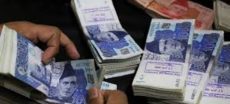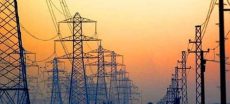[vc_row][vc_column][vc_column_text dp_text_size=”size-4″]ISLAMABAD: Pakistan claimed on Wednesday that it had received an indication from Saudi Arabia for additional loans that could help it break the impasse with the International Monetary Fund (IMF), and that it did not intend to exit the $6.5 billion programme prematurely.
“We have received an indication from Saudi Arabia about getting something,” Dr Aisha Pasha, Minister of State for Finance, said after attending a parliamentary committee meeting, without specifying the amount of the loan.
She also informed the Senate Standing Committee on Finance that progress had been made on a friendly country deposit the day before, stating that “we will soon reach the stage to sign the Staff-Level Agreement with the IMF.”
Also Read: Pakistan waiting for a nod from Gulf states in order to unlock IMF loan
The IMF has requested that Pakistan arrange $6 billion in additional loans, at least half of which must be disbursed before the board meeting. The funds are required to avoid a sovereign default while also increasing foreign exchange reserves to cover 1.7 months of imports.
To meet the additional financing requirements, Pakistan informed the IMF that it would receive $2 billion in additional loans from Saudi Arabia and $1 billion from the UAE.
The UAE Ambassador, Hamad Obaid Ibrahim Salim Al-Zaabi, also met with Finance Minister Ishaq Dar. According to a finance ministry handout, the finance minister highlighted several ways in which both countries could strengthen their existing trade and investment relations.
According to sources, the IMF wanted the $3 billion to be financed through a combination of bilateral and commercial loans.
Dr. Aisha responded to a question after the meeting, “It is obvious that foreign commercial banks will not lend until there is a staff-level agreement with the IMF.”
Also Read: IMF denies claim of linking polls delay with fund’s conditions
The ninth review talks ended inconclusively on February 9, and Pakistani officials have claimed that the deal with the IMF will be completed “in a few days.”
Their relationship deteriorated after Prime Minister Shehbaz Sharif announced a Rs50 per litre petrol subsidy on the advice of the Petroleum Division but without the finance ministry’s approval.
We are telling the IMF that Saudi Arabia and the UAE will come through for us, and that as a result of these two countries, Pakistan will soon reach the stage of staff-level agreement, according to the state minister. She stated that the IMF was taking their time to independently verify that from them.
People and industry have suffered greatly as a result of increases in electricity and petrol prices, rupee depreciation, and the mini-budget, but the government has yet to reach an agreement with the IMF, according to PTI Senator Mohsin Aziz.
In response to a question about a backup plan if the IMF deal falls through, Dr Aisha stated, “the government is not even considering a scenario without an IMF scenario.”She reiterated that business as usual will not work and that structural reforms must be implemented in order to regain the IMF’s trust.
Because of previous experiences, Pakistan’s credibility has deteriorated in the eyes of the IMF, and the Fund is requesting that prior actions be taken, according to Dr. Aisha.
She stated that Pakistan has completed all previous actions and that the only remaining point of contact is the external financing gap.
Before the committee, Malik Bostan, a representative of foreign exchange companies, claimed that he could arrange foreign funds to address Pakistan’s external sector woes.
With the help of overseas Pakistanis, the exchange companies can provide the government with $1 billion interest-free per month for two years, according to Bostan. He also demanded a licence to conduct Hawala business, which is currently illegal.
Bostan, who was invited by the standing committee, also requested an exemption from the CNIC condition on customers selling up to $15,000 in value.
At a time when the finance ministry is already struggling to restore the IMF programme, an ill-conceived fuel subsidy scheme added to the Q Block’s woes.
Dr Aisha responded to a question by saying, “Petrol subsidy is the idea of the Petroleum Division, and the scheme is not yet designed.”
She stated that the IMF was only in favour of targeted subsidies. The IMF will not object to the petrol subsidy if it is plausible, targeted, and executable, according to the state minister.
In a news conference last week, the minister of state for petroleum appears to have prematurely announced the Rs50 per litre subsidy.
Senator Farooq H Naek of the PPP also criticised the government’s untargeted and poorly managed wheat flour scheme, which he claimed had resulted in the deaths of several people.
According to Dr. Aisha, the Punjab government was unable to effectively implement the wheat flour subsidy scheme.[/vc_column_text][/vc_column][/vc_row]











